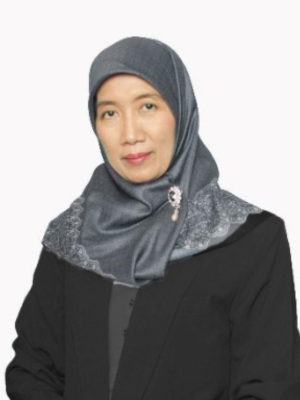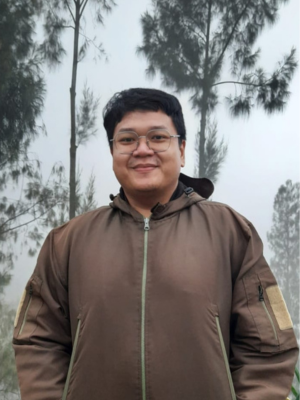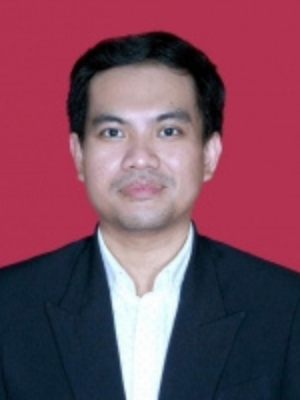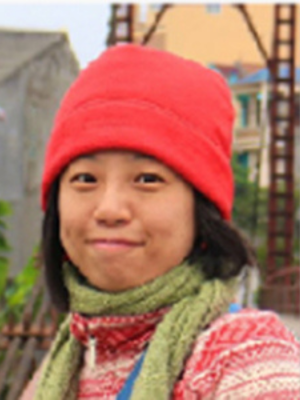Lumbung Mataraman as a Strengthening of Food Security in the Special Region of Yogyakarta
Downloads
This study investigates the role of the Lumbung Mataraman program in the Special Region of Yogyakarta (DIY) in
enhancing food security and supporting the achievement of Sustainable Development Goals (SDGs), particularly
SDG 2 (Zero Hunger). Utilizing a qualitative approach, the research was conducted in Sleman, Bantul, and
Gunungkidul regency’s regions with active participation in the program and diverse agroecological contexts. Data
were collected through participatory observation, in-depth interviews with key stakeholders (including local
officials, extension officers, barn managers, and smallholder farmers), and policy documents and reports analysis.
The findings reveal that Lumbung Mataraman improves local food availability and resilience and fosters community
empowerment, institutional coordination, and the preservation of local wisdom. Moreover, the program supports
gender inclusion and sustainable agricultural practices and strengthens the socio-economic fabric of rural
communities. Lumbung Mataraman is a replicable model for sustainable, community-driven resilience strategies in
other regions by integrating traditional food security mechanisms with contemporary development frameworks.
Aji, N. S. (2014). Pembangunan Industri Penambangan Dan Pengolahan Pasir Besi Serta Implikasinya Terhadap Ketahanan Ekonomi Wilayah (Studi Di Kabupaten Kulon Progo Daerah Istimewa Yogyakarta). Jurnal Ketahanan Nasional, XX(2), 79–86.
Altieri, M. A. (2004). Agroecology: The science of sustainable agriculture (2nd ed.). Boulder, CO: Westview Press.
Amalia, R., & Marta, D. (2018). Preserving Traditional Food from West Java: An Effort to Maintain National and Regional Food Security. International Journal on Studies in English Language and Literature (IJSELL), 6(9), 1–7.
Anderson, B. (1972). Java in a Time of Revolution: Occupation and Resistance, 1944-1946. Cornell University Press.
Arip, S. (2003). Modernisasi Irigasi, Pembaharuan Kebijakan Pengelolaan Irigasi (PKPI) dan Kebutuhan Riset Tentang Irigasi di Masa Depan. Prosiding Pertemuan Singkat Di Balai Besar Keteknikan Pertanian.
Ashari, N., Saptana, N., & Purwantini, T. B. (2016). Potensi dan Prospek Pemanfaatan Lahan Pekarangan untuk Mendukung Ketahanan Pangan. Forum Penelitian Agro Ekonomi, 30(1).
Awang; et al. (2016). An Assessment of The Socio-economic Impact of Maiganga Resettlement Scheme, Akko LGA, Gombe State Nigeria. International Journal of Environmental & Agriculture Research (IJOEAR), 2.
BAPPEDA DIY. (2023). Rencana Kerja (RENJA) BAPPEDA DIY.
Berchin, I. I., Nunes, N. A., de Amorim, W. S., Alves Zimmer, G. A., da Silva, F. R., Fornasari, V. H., Sima, M., & de Andrade Guerra, J. B. S. O. (2019). The contributions of public policies for strengthening family farming and increasing food security: The case of Brazil. Land Use Policy, 82, 573–584. https://doi.org/10.1016/j.landusepol.2018.12.043
Danugroho, A. (2022). Pendidikan Dalam Kacamata Ketahanan Nasional. Jejak Pustaka.
Danugroho, A. (2022). Threats To Food Security in The Food and Energi Barn Area: Agricultural Land Function Change in Bojonegoro Regency. ARISTO, 10(2), 218–231. https://doi.org/10.24269/ars.v10i2.5056
Dinas Pertanian dan Ketahanan Pangan Daerah Istimewa Yogyakarta. (2023). Laporan tahunan program Lumbung Mataraman 2022/2023. Yogyakarta: Dinas Pertanian dan Ketahanan Pangan DIY.
Dinas Pertanian dan Ketahanan Pangan Daerah Istimewa Yogyakarta. (2024). Laporan tahunan program Lumbung Mataraman 2023/2024. Yogyakarta: Dinas Pertanian dan Ketahanan Pangan DIY.
Ecker and Breisinger. (2012). The Food Security System.
Fox, R. G. (1972). Rationale and romance in urban anthropology. Urban Anthropology.
Greenberg, E. F. (2017). Political Socialization. Routledge.
Harper, D. A. T., & Benton, M. J. (2001). Preface: History of Biodiversity. Geological Journal, 36(3–4), 185–186. https://doi.org/10.1002/gj.899
Harper, Deaton, & Doiskel. (1986). Pangan, Gizi dan Pertanian (Diterjemahkan oleh Suhardjo). UI Press.
Hidayat, S. (2017). Teori Sosial Pierre Bourdieu Dan Sumbangannya Terhadap Penelitian Sastra (Pierre Bourdieu’s Social Theory and Its Contribution Toward Literary research). METASASTRA: Jurnal Penelitian Sastra. https://doi.org/10.26610/metasastra.2010.v3i1.43-52
Hirawan, F. B., & Verselita, A. (2020). Kebijakan Pangan di Masa Pandemi COVID-19.
Juningsih, L. (2015). Multikulturalisme di Yogyakarta dalam Perspektif Sejarah. Pergulatan Multikulturalisme Di Yogyakarta Dalam Perspektif Bahasa, Sastra, Dan Sejarah”.
Kota Yogya, P. (2023). Sejarah Kota Yogyakarta. Pemerintah Kota Yogyakarta.
Kuspriyantono, A. (2020). Efektivitas Program Kawasan Rumah Pangan Lestari (KRPL) di Desa Awar-Awar Kecamatan Asembagus. AGRIBIOS, 18(2), 61. https://doi.org/10.36841/agribios.v18i2.891
Ma’arif, S., & Hizbaron, D. R. (2015). Model Ketangguhan Bencana Erupsi Gunung Merapi, Strategi Menuju Masyarakat Tangguh Bencana Dalam Perspektif Sosial. Gadjah Mada University Press.
Moelong, L. J. (2016). Metodologi Penelitian Kualitatif Edisi Revisi. PT. Remaja Rosdakarya.
Ngoasong, M. Z. (2014). How international oil and gas companies respond to local content policies in petroleum-producing developing countries: A narrative enquiry. Energy Policy, 73, 471–479. https://doi.org/https://doi.org/10.1016/j.enpol.2014.05.048
Octaria, Y., Sukandar, D., Khomsan, A., & Tanziha, I. (2021). Maternal Characteristics As Predictors For Stunting In Rural Agricultural Households In Indonesia. Malaysian Journal of Public Health Medicine. https://doi.org/10.37268/mjphm/vol.21/no.2/art.1073
Oliver-Smith, A. (2019). “What is a disaster?": Anthropological perspectives on a persistent question. In The Angry Earth: Disaster in Anthropological Perspective. https://doi.org/10.4324/9781315298917-4
Pham, T.-T.-H., & Turner, S. (2020). ‘If I want safe food I have to grow it myself’: Patterns and motivations of urban agriculture in a small city in Vietnam’s northern borderlands. Land Use Policy, 96, 104681. https://doi.org/10.1016/j.landusepol.2020.104681
Prastowo, I., Nurusman, A. A., Moro, H. K. E. P., Rizkianti, & Dewi, C. (2023). Diversity of Indonesian offal-based dishes. In Journal of Ethnic Foods. https://doi.org/10.1186/s42779-023-00181-8
Rachmawati, R. (2020). Urban Farming: Strategi Ketahanan Pangan Keluarga Perkotaan pada Masa Pandemi Covid-19. Https://Pse.Litbang.Pertanian.Go.Id.
Riawanti, W. (2017). Peningkatan Pendapatan Keluarga Pertanian Berkelanjutan: Studi Kasus Pilot Project Kawasan Rumah Pangan Lestari dalam Program Lumbung Mataraman di Daerah Istimewa Yogyakarta. Optimum: Jurnal Ekonomi Dan Pembangunan, 7(2), 118. https://doi.org/10.12928/optimum.v7i2.7919
Riordan, C., & Sarkar, J. (1998). Building social capital in non‐governmental organizations: buffalo banks and borewells. International Journal of Sociology and Social Policy, 18(1), 55-69. https://doi.org/10.1108/01443339810788317
Ritonga, A., Erlina, & Supriadi. (2015). Analisis Peran Pemuda Terhadap Pembangunan Pertanian Lahan Pangan Berkelanjutan Di Kabupaten Labuhanbatu Utara. Jurnal Pertanian Tropik, 2(3), 312.
Rustinsyah. (2019). Social capital in agricultural irrigation management of “RBUMDES Mursapa.” Masyarakat, Kebudayaan Dan Politik, 32(2), 123. https://doi.org/10.20473/mkp.v32i22019.123-133
Sarjiyah; et al. (2016). Identifikasi Singkong Varietas Lokal Kabupaten Gunung Kidul Daerah Istimewa Yogyakarta.
Schermer, M. (2015). From “Food from Nowhere” to “Food from Here”: Changing Producer Consumer Relations in Africa. Agric Hum Values, 32.
Sen, A. (1981). Poverty and famines: An essay on entitlement and deprivation. Oxford: Oxford University Press.
Setiawati, N. A. (2021). Land Regulations in the Yogyakarta Sultanate Rijksblad In the Second Decade of the 20 Century. Paramita: Historical Studies Journal. https://doi.org/10.15294/paramita.v31i1.27500
Smith, J., Nasr, & Ratta. (2001). Urban Agriculture, Food, Jobs, and Sustainable Cities.
Soemardjan, S. (2009). Perubahan sosial di Yogyakarta. Komunitas Bambu.
Soemaryatmi, & Suharji. (2015). Sosiologi Seni Pertunjukan Pedesaan (A. Rosmiat). ISI Press.
Supriyadi, B., Sudarwanto, B., & Werdiningsih, H. (2012). In Search of the Power of Javanese Culture against the Cultural Urbanization in Kotagede, Yogyakarta-Indonesia. Procedia - Social and Behavioral Sciences, 68, 676–686. https://doi.org/10.1016/j.sbspro.2012.12.258
Tweeten, L. (1999). The Economics of Global Food Security. Review of Agricultural Economics, 21(2), 473–488.
Umar, J. (2021). Kewenangan Otonomi Daerah: Sistem Pertanahan Daerah Istimewa Yogyakarta. Cerdika: Jurnal Ilmiah Indonesia. https://doi.org/10.59141/cerdika.v1i2.27
Viale Pereira, G., Cunha, M. A., Lampoltshammer, T. J., Parycek, P., & Testa, M. G. (2017). Increasing collaboration and participation in smart city governance: a cross-case analysis of smart city initiatives. Information Technology for Development, 23(3), 526–553. https://doi.org/10.1080/02681102.2017.1353946
Wattimena, Z., Septiyanti, M., & Mutiarin, D. (2021). Inovasi Kebijakan Pemerintah Daerah DIY dalam Membangun Ketahanan Pangan di Era Pandemi Covid-19. Matra Pembaruan, 5(2), 127–139. https://doi.org/10.21787/mp.5.2.2021.127-139
Yakob, E., & Tolo, S. (2013). Dari Otokrasi Ke Demokrasi: Menyibak Sejarah Dan Survivalitas “Demokrasi Ala Daerah Istimewa Yogyakarta.” Humaniora.
Yudhistira, B., & Fatmawati, A. (2020). Diversity of Indonesian Soto. Journal of Ethnic Foods, 7(27), 1–9.
Yudhistira Saraswati, & Pratiwi, R. A. (2024). Optimalisasi Penataan Lumbung Mataraman dalam Mendukung Kawasan Wisata Edukasi Terpadu Padukuhan Ngalian, Desa Widodomartani. Agrokreatif: Jurnal Ilmiah Pengabdian Kepada Masyarakat, 10(1), 102–111. https://doi.org/10.29244/agrokreatif.10.1.102-111
Yusrifa, F., & Agus Danugroho. (2022). Regional resilience in post-disaster recovery efforts of Merapi eruption based on local wisdom in Sleman Regency. Jurnal Sosiologi Dialektika, 17(2), 159–171. https://doi.org/10.20473/jsd.v17i2.2022.159-171
Copyright (c) 2025 Biokultur

This work is licensed under a Creative Commons Attribution-NonCommercial-ShareAlike 4.0 International License.
1. Copyright of this journal is possession of Editorial Board and Journal Manager, by the knowledge of the author, while the moral right of the publication belongs to the author.
2. The formal legal aspect of journal publication accessibility refers to a Creative Commons Attribution-NonCommercial-ShareAlike 4.0 International License (CC BY-NC-SA).
3. All publications (printed/electronic) is open access for educational purposes, research, and library. Other than the aims mentioned above, the editorial board is not responsible for copyright violation.









